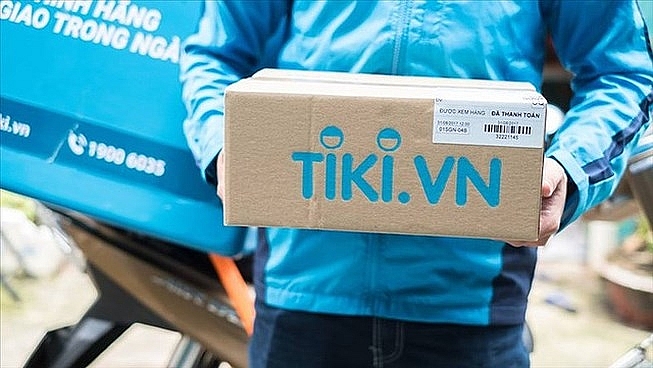Tiki reports second year of losses
 |
| Tiki claims the losses are part of its development strategy, an explanation that is growing strained |
Tiki was established in 2010 as a startup e-bookstore but has since diversified operations to sell phones, tablets, digital devices, electrical appliances, toys, and souvenirs.
In August 2013, Tiki signed a strategic partnership with Japan’s Sumitomo Corporation and became the first e-commerce company in Vietnam to receive investment from the Japanese company.
Under the partnership, Sumitomo would hold a 30 per cent stake in Tiki to become its second strategic investor, after Japanese investment fund CyberAgent Ventures (15 per cent).
In May 2016, VNG Corporation, Vietnam's top provider of Internet content, completed a VND383-billion ($17.02 million) deal to acquire a 38 per cent stake in Tiki. Accordingly, VNG spent VND104,000 ($4.57) per share, with the expectation to acquire benefits from one of the largest e-commercial platforms in Vietnam.
With backing from Japanese investors Sumitomo Corporation and CyberAgent Ventures, which own a combined stake of 45 per cent, in collaboration with the investment from VNG, Tiki was expected to become a heavyweight in the e-commerce sector in the country. However, the firm has been reporting losses for two consecutive years now.
Notably, according to the financial statement of VNG Corporation, a shareholder of Tiki, in 2017 Tiki reported a loss of VND282 billion ($12.38 million), triple its charter capital and seven times higher than the loss in 2016. Hence, Tiki’s total losses two years after receiving investment from VNG were VND320 billion ($14.05 million).
Tiki CEO Tran Ngoc Thai Son stated that the losses are a part of the firm’s long-term development plan. Tiki is expanding its scale of operations via investing in infrastructure, warehouses, human resources, and technology.
In reality, according to the statistics of Euromonitor, Tiki ranked sixth among the online shopping sites of Vietnam in 2017 with the visitor volume of 15.08 million. However, according to customers, there is a painful lack of transparency in Tiki’s promotion programmes. Notably, the firm often increases selling price quietly to then provide discounts at the original price.
Earlier this year, Tiki received $54 million in Series C investment made by Chinese internet giant JD.com and South Korea's STIC Investments. The additional capital is expected help Tiki to consolidate its market presence.
At present, the Vietnamese e-commerce sector holds great potential but is also a playground ruled by strict competition by numerous heavyweights.
The fierce competition was shown after a series of e-commerce floors had to shut down because of big losses. Beyeu, Deca, and Lingo left the market after long struggles to survive.
According to industry insiders, companies need to allocate enormous expenses for their e-commerce business from sales and marketing to warehousing and logistics, so it can easily eat up profits. Also, many platforms suffered losses from special discount offers and promotion campaigns to snag new customers.
At present, it is still early to conclude that the consecutive losses of Tiki is a show of weakness, however, Beyeu, Deca, and Lingo are signals that the market is not for players lacking financial potential or methodical development strategies.
What the stars mean:
★ Poor ★ ★ Promising ★★★ Good ★★★★ Very good ★★★★★ Exceptional
 Tag:
Tag:
Related Contents
Latest News
More News
- BJC to spend $723 million acquiring MM Mega Market Vietnam (January 22, 2026 | 20:29)
- NamiTech raises $4 million in funding (January 20, 2026 | 16:33)
- Livzon subsidiary seeks control of Imexpharm (January 17, 2026 | 15:54)
- Consumer deals drive Vietnam’s M&A rebound in December (January 16, 2026 | 16:08)
- Southeast Asia tech funding rebounds on late-stage deals (January 08, 2026 | 10:35)
- DKSH to acquire Vietnamese healthcare distributor Biomedic (December 24, 2025 | 15:46)
- Central Retail refocuses Vietnam strategy with Nguyen Kim exit (December 24, 2025 | 15:01)
- RongViet Securities wins sixth consecutive M&A advisory award (December 22, 2025 | 17:30)
- Kido Group divests from ice cream and frozen foods (December 18, 2025 | 16:49)
- Insurtech startup Saladin wraps up Series A funding round (December 17, 2025 | 09:10)


























 Mobile Version
Mobile Version